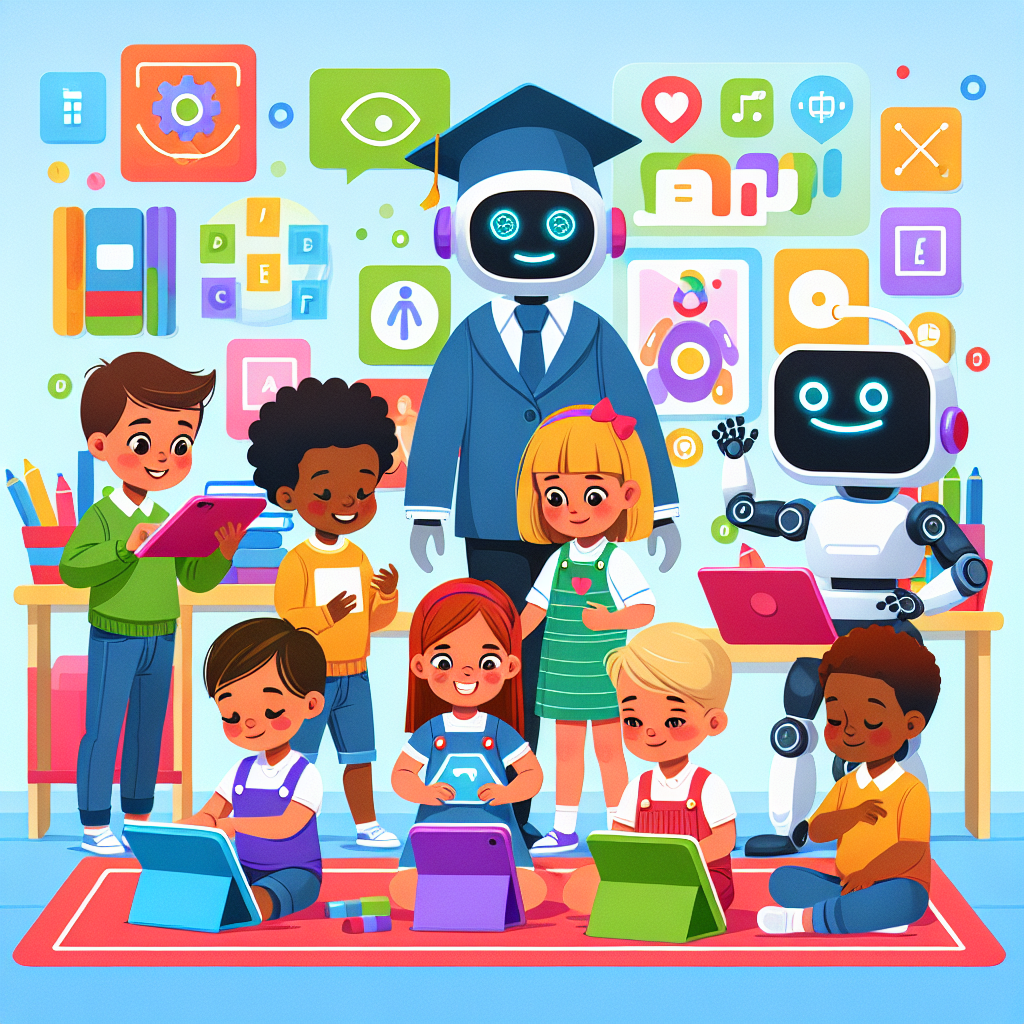Artificial Intelligence (AI) is rapidly transforming various industries, and education is no exception. In recent years, there has been a growing interest in exploring the potential of AI in early childhood education. With AI technologies becoming increasingly sophisticated, there are exciting possibilities for how they can be leveraged to enhance learning experiences for young children.
One of the key benefits of using AI in early childhood education is the ability to personalize learning. Every child is unique and learns at their own pace, and AI can help tailor educational content to meet the specific needs of each individual student. By analyzing data on a child’s learning preferences, strengths, and weaknesses, AI can provide personalized recommendations on what activities and resources would be most beneficial for their learning journey. This personalized approach can help children stay engaged and motivated, leading to better learning outcomes.
AI can also provide valuable feedback to teachers and parents on a child’s progress. By collecting and analyzing data on a child’s performance, AI can identify areas where the child may be struggling and suggest interventions to help them improve. This real-time feedback can enable teachers and parents to address learning gaps early on, before they become more significant issues.
Another potential use of AI in early childhood education is in the development of educational games and apps. AI-powered games can adapt to a child’s skill level and provide challenges that are appropriate for their abilities. These games can be a fun and engaging way for children to learn new concepts and skills, while also helping them develop critical thinking and problem-solving abilities.
AI can also support teachers in their lesson planning and instruction. By analyzing data on student performance, AI can help teachers identify which teaching strategies are most effective and which areas need further attention. This data-driven approach can help teachers optimize their teaching methods and ensure that all students are receiving the support they need to succeed.
Despite the potential benefits of AI in early childhood education, there are also concerns about its impact on children’s development. Some critics worry that relying too heavily on AI for learning could lead to a lack of social interaction and personal connection, which are important aspects of early childhood development. It is essential to strike a balance between using AI as a tool to enhance learning and ensuring that children have opportunities for hands-on, interactive experiences with peers and teachers.
As AI continues to advance, it is crucial for educators, parents, and policymakers to stay informed about the latest developments in AI technology and how it can be effectively integrated into early childhood education. By leveraging the potential of AI in a thoughtful and responsible manner, we can create more engaging and personalized learning experiences for young children and help them reach their full potential.
FAQs:
1. How can AI personalize learning for young children?
AI can personalize learning for young children by analyzing data on their learning preferences, strengths, and weaknesses. By understanding each child’s unique needs and abilities, AI can provide personalized recommendations on educational activities and resources that would be most beneficial for their learning journey.
2. What are some examples of AI-powered educational games?
AI-powered educational games can adapt to a child’s skill level and provide challenges that are appropriate for their abilities. These games can cover a wide range of subjects, from math and science to language arts and social studies. Some examples of AI-powered educational games include DreamBox Learning, ABCmouse, and Osmo.
3. How can AI support teachers in early childhood education?
AI can support teachers in early childhood education by providing valuable feedback on student performance and identifying areas where children may be struggling. By analyzing data on student progress, AI can help teachers optimize their teaching methods and ensure that all students are receiving the support they need to succeed.
4. What are the concerns about using AI in early childhood education?
Some concerns about using AI in early childhood education include the potential for a lack of social interaction and personal connection, which are important aspects of children’s development. It is essential to strike a balance between using AI as a tool to enhance learning and ensuring that children have opportunities for hands-on, interactive experiences with peers and teachers.

